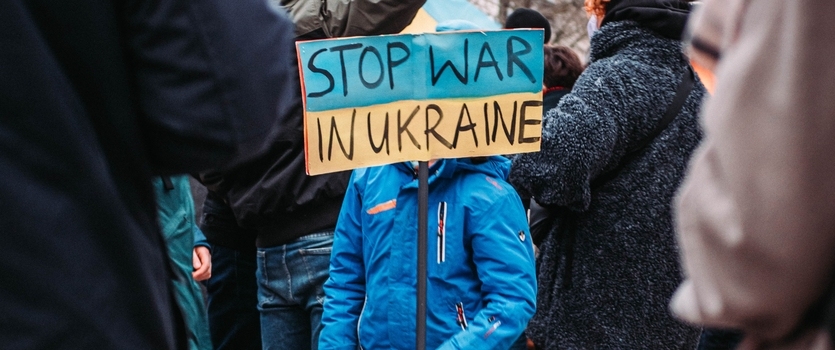Mae'r cynnwys hwn ar gael yn Saesneg yn unig.
The murderous onslaught on sovereign Ukraine by Putin and his ruling clique of siloviki, or former members of the security services, has made the world aware of the enormities characterising his regime. We already had plenty of evidence of ruthlessness: Chechnya, Georgia, Syria, fomenting ethnic division in Donbass, and the Crimea.
Putin, a KGB foreign intelligence officer, joined Boris Yeltsin’s staff in 1996. He had a graphic view of Russia’s problems as director of the Federal Security Bureau (FSB) and secretary of the Security Council. He was appointed prime minister in 1999, acting president on Yeltsin’s resignation, 31 December 1999, and elected president, 7 May 2000. Putin has since manipulated the Constitution, allowing him to control the government, potentially until 2036.
The Yeltsin years were an opportunity to consolidate democracy in Russia which should have been given more external support. Instead, it declined into political, economic, and social chaos. Putin’s early mission was to bring order and stability. He appeals to patriotism, claiming to have restored the respect Russia felt it had lost. This distracts from Russia’s domestic problems: its demographic decline, over-reliance on commodities, kleptocracy, and economic and social inequalities. To this end, Putin has a passive political base in United Russia that dominates the State Duma (Parliament). These rubber-stamp decisions taken by Putin and his inner circle on the Security Council, including that intellectual thug Sergei Lavrov.
Russia’s potential for democracy has been eroded using the media for state propaganda and eliminating independent outlets. The broadcast channel RT (formerly Russia Today) is aimed at foreigners. Elections are manipulated, and political opponents such as Alexei Navalny are imprisoned using a compliant legal system or perhaps murdered, as were the journalist Anna Politkovskaya (2006) and Duma deputy Boris Nemtsov (2015). The arrest of protestors against the war in Ukraine is the most recent example. The post-soviet aspiration to develop a political democracy, civil society, prosperous economy, and open rules-based foreign relations has given way before a neo-authoritarianism aimed at restoring Russia as a world power. The war in Ukraine, without rational or moral justification, is the consequence.
In a famous Russian phrase: What is to be done? Solidarity and all possible material support must be given to sovereign Ukraine. The Putin state and those who benefit from it such as its business oligarchs must be sanctioned comprehensively. This will bring consequences home to ordinary Russians. However, we must guard against a siege mentality. If Putin is to be removed without a Third World War, it must be done in Russia and by Russians. We have already seen street protests and heard the voices of dissident academics, students, and prominent Russians such as Gary Kasparov, Andrei Kozyrev, a former Foreign Minister, and Dimitri Muratov, editor of the independent Novaya Gazeta (New Gazette) and Nobel Peace Prize winner (2021). There is also a nascent civil society, apart from the state apparatus. Although under pressure, it may still be a source of opposition with effective sanctions. Each must be supported given the repressive world of Putin’s Russia which threatens us all.

